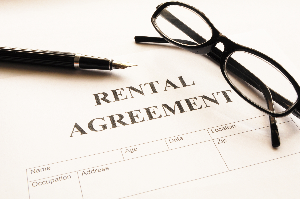First-Time Renters Pre-Moving Guide
 Moving into a new rental is a major life step for a young adult. Whether you’re transitioning from a dorm to off-campus housing, graduating, or moving out of your parents’ home, taking the leap into apartment living comes with both excitement and challenges.
Moving into a new rental is a major life step for a young adult. Whether you’re transitioning from a dorm to off-campus housing, graduating, or moving out of your parents’ home, taking the leap into apartment living comes with both excitement and challenges.
Now that you’ve found your future home, you need to carefully prepare for the move. While you might be tempted to just pack your clothes and box up your books, planning ahead can save you time, money, and headaches.
What do you need to consider before moving into your rental? Look at what first-time renters need to know before moving day.
Review the Lease
You might absolutely adore the new apartment that you spend weeks looking for. But that doesn’t mean you should jump head first into a lease without looking. Make sure that you understand and agree with all their terms. Breezing through the lease and signing it without truly understanding what it says can get you into trouble later on.
Make sure to read through the entire document. If you don’t understand the language or something doesn’t seem right, ask a more experienced adult (such as your parent) or an attorney to look it over. Never sign a document that you don’t fully agree with. The landlord may be agreeable to making some slight changes, but don’t expect them to overhaul the lease for you.
Purchase Renters Insurance
Renters insurance is a policy that every tenant should have, whether the landlord requires it or not. If your landlord requires all tenants to have this insurance, they’ll state it in the lease. Even though the percentage of Americans purchasing this insurance has increased over the past few years, in 2016 only 41 percent of renters had it, according to an Insurance Information Institute poll.
Even though individual renters insurance policies will cost varying amounts and provide different types of coverage, this type of insurance can provide you with a sense of comfort. While no renter wants to think of the worst case scenario (such as a fire, flood, or theft), these things happen. If you don’t have renters insurance, you may be left footing the bill for damage to the rental unit and your own property.
Review the policy carefully prior to purchasing it. If your landlord requires this insurance, make sure that it provides the coverage required of you.
Set Up Utility Service
Some rentals include gas, electric, water, and other similar utilities. If your unit doesn’t, you’ll need to put these utilities in your name prior to the move in date. Waiting until you’re already in the rental may mean that you won’t have light, heat, air conditioning, or water for a few days or even longer.
Not only is a home without utilities uncomfortable, but it also presents safety hazards. The lack of lighting at night may cause you to trip and fall, and the inability to heat or cool your home may raise the risk of temperature-related illnesses, such as heat exhaustion. A home without electricity and lights may also make your rental more attractive to thieves, raising the chance of burglary and theft.
Check Safety Monitors
Smoke detectors save lives. Make sure that the rental has smoke detectors that work. This includes pressing the test button and checking for working batteries. The National Fire Protection Association states that almost 1/2 of smoke alarms that didn’t go off during fires was because of zero or disconnected batteries.
Along with smoke detectors, inspect and test carbon monoxide detectors and burglar alarms.
Do you need renters insurance? Contact Family Insurance Centers for more information.
